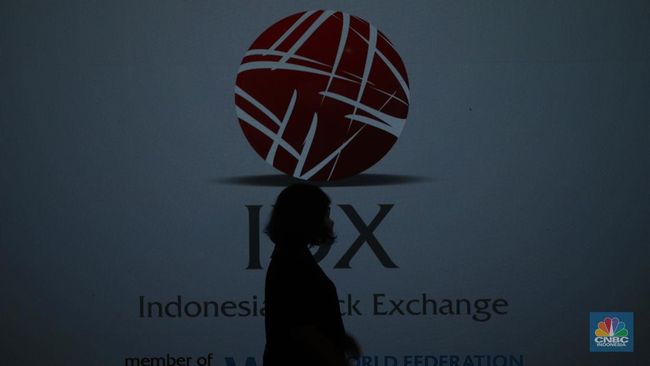Jakarta, CNBC Indonesia –The Composite Stock Price Index (JCI) moved sharply higher last week after being corrected in the previous week. The strengthening of the JCI is in line with the movement of global stock markets.
Last weekend, the JCI closed trading slightly higher by 0.33% to 6,886,962.
According to data from the Indonesia Stock Exchange (IDX), during the trading period of 18-22 July 2022 or throughout last week, the JCI moved up 3.53% on an annual basis. point-to-pointafter the previous week’s correction of 1.31%.
ADVERTISEMENT
SCROLL TO RESUME CONTENT
–
Over the past week, foreign investors recorded net buying (net buy) worth Rp 420.06 billion in the domestic stock market. The inflow of foreign funds, although in small amounts, is good news considering that in the past month foreigners have released their shareholdings in the domestic stock exchange of up to Rp 7.72 trillion in all markets.
Despite their concerns, investors welcomed Bank Indonesia’s decision to maintain its benchmark interest rate at an all-time low. Last week, the country’s central bank again set BI-7 Day Reverse The repo rate (BI7DRR) is at 3.50% and has been around for 18 months.
Inflation as of June, which jumped to 4.35% on an annual basis, is still relatively low compared to other countries in the world. Not only that, core inflation at 2.63% is still within BI’s target range of 2-4%. Thus, BI considers that there is no urgency to raise its benchmark interest rate.
At the Asian level, the JCI is not alone, the majority of stock markets have also strengthened. Meanwhile, at the world level, global stock markets have also strengthened, including Wall Street’s three main indexes and European stock exchanges.
From other financial markets, the rupiah exchange rate slightly corrected against the United States (US) dollar in last week’s trading, although the US dollar index actually weakened sharply in the spot market.
Launching Refinitiv, last week the rupiah weakened by 25 points or corrected 0.17% against the US dollar. Meanwhile, the US dollar index, which measures the greenback’s performance against six other major world currencies, also fell 1.2% to 106.73.
However, CIBC Capital Markets Head of FX Strategy Toronto Bipan Rai said that the US dollar’s weakness was only temporary. Rai also said that the economic slowdown in other regions reflected tight financial conditions, so the potential demand for the US dollar was still there in the future.
The weakening of the rupiah has actually been seen in June where the rupiah weakened by 2.1% in the middle, while in general year to date The rupiah was further depressed by 5.2%. It was triggered by the attitude hawkish The US central bank (Federal Reserve / The Fed) has aggressively raised its benchmark interest rate.
This step is 180 degrees different from BI’s decision to choose to become a ‘pigeon’ when other world central banks are vying to raise interest rates to curb inflation that is increasingly biting. At least 75 of the world’s central banks have raised their benchmark interest rates this year, and among the G-20 member countries, apart from Indonesia, only Japan and China have not raised their benchmark interest rates since the pandemic two years ago.
–


